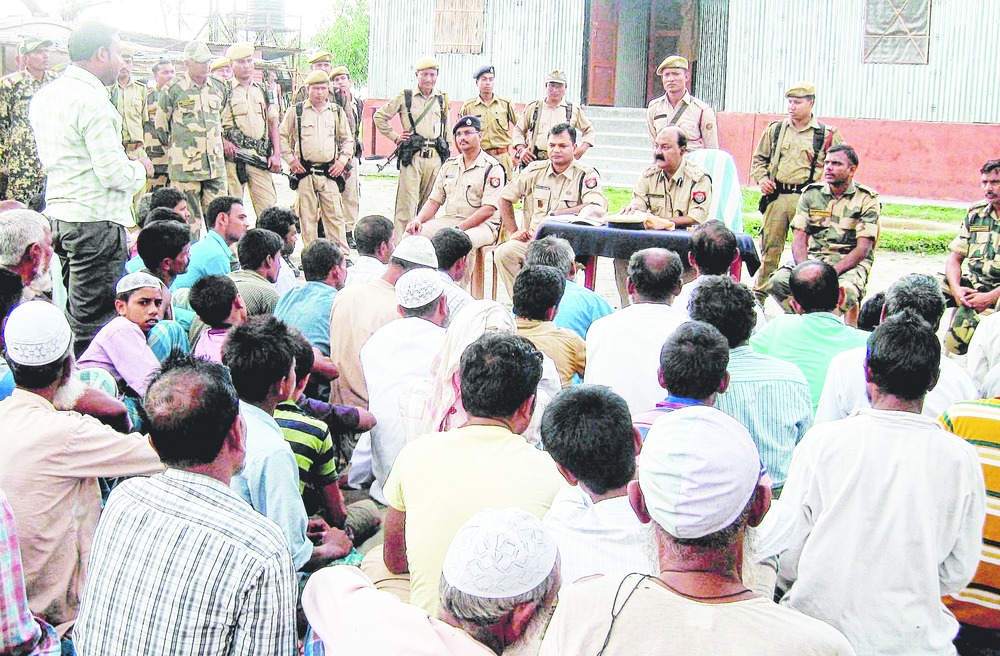
Dhubri, June 17: No markings along the 58km Indo-Bangladesh riverine international border in Dhubri district is creating hurdles in tackling the illegal transport of cattle to Bangladesh.
This was stated by deputy inspector-general of police (western range ) Abhijit Bora here last evening, while interacting with reporters over the steps being taken to stop cattle smuggling along the porous border.
Earlier, Bora accompanied with Dhubri superintendent of police Diganta Barah visited the border areas and held a meeting with villagers and BSF commandants on stopping the cattle smuggling, which has assumed serious proportions.
Bora said it was extremely difficult to stop the smuggling as Indian and Bangladeshi villages are located close to each other without any international border to indicate the jurisdiction of the two countries.
"So, first of all, markings must be done and police strength must be increased as well. At present, the police are understaffed to deal with the prevailing situation in the border villages. This is a hard reality which has to be addressed," Barah said.
Barah pointed out that under the prevailing laws, transportation of cattle to the border villages could only be delayed but could not be seized or stopped, and to seize cattle, a new law has to be enacted to empower the police to deal with the smuggling.
There are over 100 Indian villages close to those of Bangladesh along the border.
Advocate Upamanyu Hazarika, appointed last year by the Supreme Court to look into border problems, also suggested in his final report creation of a sterile belt by relocating the Indian villagers at a distance of 500 metres.
Various organisations, including the AJYCP, AASU and a section of intellectuals, have demanded for a stop to auctions of seized cattle by the customs department.
"We will soon stage a sit-in to demand an end to cattle auction and instead keep them in grazing areas allotted by the government, because if the BTAD administration can provide land for Baba Ramdev's Patanjali factories to grow medicinal and herbal plants, then grazing areas can easily be turned into cattle pounds," suggested Alok Bardha, president of Dhubri district unit of the AJYCP.
"If cattle are kept in government-allotted grazing areas, it will create employment among villagers as cattle dung vermipost is now widely used by farmers to increase yield and cow urine is also sold at Rs 80 per litre to Ayurvedic medicine manufacturers," said Suresh Dhanawat, secretary of Gauripur gaushala.










